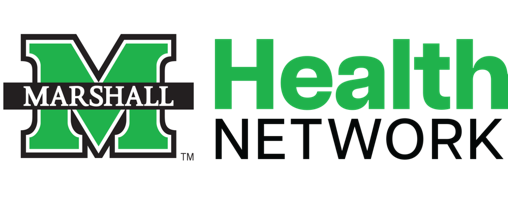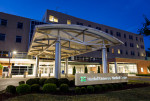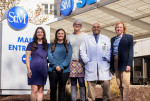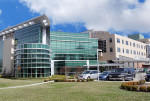St. Mary's Medical Center now using HeartFlow analysis, a novel AI diagnostic tool for heart disease
Monday, May 6, 2024
Incorporating a HeartFlow FFRCT analysis can help more accurately determine if a person with suspected coronary artery disease (CAD) should be treated for heart disease.
St. Mary’s Medical Center (SMMC), a member of Marshall Health Network, now offers a proven, non-invasive diagnostic option for people with suspected heart disease.
Finished AI model of the heart using HeartFlow technology.
The HeartFlow analysis technology uses CT images combined with CT-derived fractional flow reserve (FFRCT) to diagnose coronary artery disease (CAD) more effectively. Trained analysts and AI algorithms create an anatomical model of a person’s heart that helps physicians visualize the blood flow and detect stenosis, or plaque that obstructs the blood flow.
Heart disease is the leading cause of death for adults in the United States, and CAD is the most common type of heart disease, affecting nearly half the adult population. CAD develops when the arteries leading to the heart narrow or become blocked, which may lead to a reduction in blood flow to the heart. This can cause chest pain, heart attacks and death.
“Identifying exactly where and how an artery is blocked or clogged can help improve a person’s treatment plan, including whether or not an intervention is needed,” said Melissa Mielcarek, MSHA, MBA, FACHE, Executive Director St. Mary’s Regional Heart Institute. “The HeartFlow FFRCT analysis helps us develop the most accurate and appropriate treatment plan available for a patient with coronary artery disease.”
Despite CAD being the most common form of heart disease, studies show there is still a need to improve how and when CAD is evaluated and diagnosed. Many of the non-invasive tests available today offer a low accuracy rate in detecting CAD.
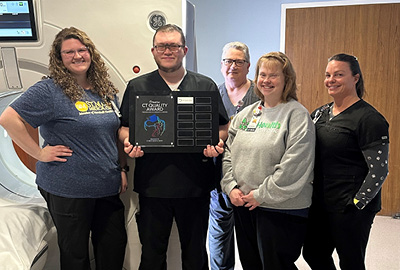
St. Mary's CT team (L-R): Chelsea Nolan, Robert Simpkins, Amy Pardue, Becky Compton, Annette Akers.
“The HeartFlow FFRCT analysis allows us to determine the right approach for a patient through a convenient, non-invasive platform,” said Jeff Adkins, BAHCM RT(R)(CT), Director of Radiology Services at SMMC.
HeartFlow FFRCT benefits include:
- Allows for more accurate non-invasive diagnosis
- Reduces unnecessary tests, providing a better patient experience, with a 4x reduction in unnecessary invasive catheterization
- Provides confidence in treating the right patients with enhanced capabilities to identify patients in need of intervention.
“This is game-changing technology,” said Mielcarek. “It’s beneficial for our patients and is offered here at St. Mary’s Medical Center.”
